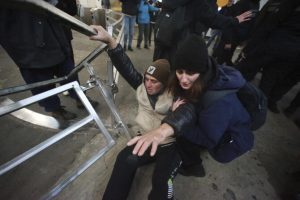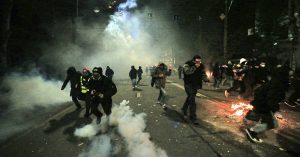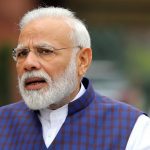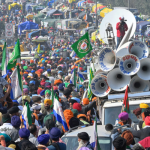44 people were hospitalised during a third night of protests in Georgia’s capital against the government’s decision to postpone discussions to join the European Union, officials said Sunday.
Tens of thousands of demonstrators gathered outside parliament Saturday night, throwing stones and setting off fireworks as police used water cannons and tear gas.
An effigy of Bidzina Ivanishvili, the founder of the ruling Georgian Dream party and a billionaire who gained his fortune in Russia, was burned in front of the assembly.
Prime Minister Irakli Kobakhidze warned that “any violation of the law will be met with the full rigor of the law.”




He insisted it wasn’t true that Georgia’s European integration had been halted.
He stated that the only thing that was rejected is the shameful and offensive blackmail, which was, in fact, a significant obstacle to the country’s European integration.
The government’s announcement came hours after the European Parliament adopted a resolution criticising last month’s general election in Georgia as neither free nor fair.
Kobakhidze also dismissed the U.S. State Department’s statement that it was suspending its strategic partnership with Georgia.
The statement condemned Georgia’s decision to halt its efforts toward EU accession.
EU foreign policy chief Kaja Kallas and enlargement commissioner Marta Kos released a joint statement Sunday on the Georgian government’s decision to suspend negotiations.
“We note that this announcement marks a shift from the policies of all previous Georgian governments and the European aspirations of the vast majority of the Georgian people, as enshrined in the Constitution of Georgia,” the statement said.
It reiterated the EU’s “serious concerns about the continuous democratic backsliding of the country” and urged Georgian authorities to “respect the right to freedom of assembly and freedom of expression, and refrain from using force against peaceful protesters, politicians and media representatives.”
The ruling Georgian Dream party’s disputed victory in the Oct. 26 parliamentary election, which was widely seen as a referendum on Georgia’s aspirations to join the EU, has sparked major demonstrations and led to an opposition boycott of parliament.
The opposition has said that the vote was rigged with the help of Russia, Georgia’s former imperial master, with Moscow hoping to keep Tbilisi in its orbit.
Speaking to The Associated Press on Saturday, Georgia’s pro-Western President Salome Zourabichvili said that her country was becoming a “quasi-Russian” state and that Georgian Dream controlled the major institutions.














